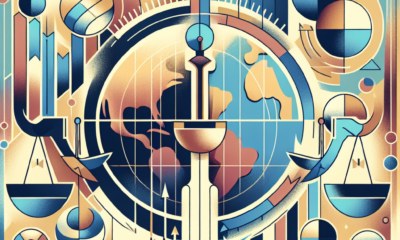(The Center Square) – Minority benefit against the majority giving up “agency, creativity, decision-making and other vital skills” in what is described as a valley of an artificial intelligence journey is likely in the next few years, says one voice among hundreds in a report from Elon University.
John M. Stuart’s full-length essay, one of 200 such responses in “Being Human in 2035: How Are We Changing in the Age of AI?,” speaks to the potential problems foreseen as artificial intelligence continues to be incorporated into everyday life by many at varying levels from professional to personal to just plain curious. The report authored by Janna Anderson and Lee Rainie of Elon’s Imagining the Digital Future Center says “the fragile future of some foundational and unique traits” found only in humans is a concern for 6 in 10.
“I fear – the time being – that while there will be a growing minority benefitting ever more significantly with these tools, most people will continue to give up agency, creativity, decision-making and other vital skills to these still-primitive AIs and the tools will remain too centralized and locked down with interfaces that are simply out of our personal control as citizens,” writes Smart, a self-billed global futurist, foresight consultant, entrepreneur and CEO of Foresight University. “I fear we’re still walking into an adaptive valley in which things continue to get worse before they get better. Looking ahead past the next decade, I can imagine a world in which open-source personal AIs are trustworthy and human-centered.
“Many political reforms will reempower our middle class and greatly improve rights and autonomy for all humans, whether or not they are going through life with PAIs. I would bet the vast majority of us will consider ourselves joined at the hip to our digital twins once they become useful enough. I hope we have the courage, vision and discipline to get through this AI valley as quickly and humanely as we can.”
Among the ideas by 2035 from the essays, Paul Saffo offered, “The first multi-trillion-dollar corporation will employ no humans except legally required executives and board, have no offices, own no property and operate entirely through AI and automated systems.”
Saffo is a futurist and technology forecaster in the Silicon Valley of California, and a consulting professor at the School of Engineering at Stanford.
In another, Vint Cerf wrote, “We may find it hard to distinguish between artificial personalities and the real ones. That may result in a search for reliable proof of humanity so that we and bots can tell the difference.”
Cerf is generally known as one of the “fathers of the internet” alongside Robert Kahn and for the internet protocol suite, colloquially known as TCP/IP.
Working alongside the well-respected Elon University Poll, the survey asked, “What might be the magnitude of overall change in the next decade in people’s native operating systems and operations as we more broadly adapt to and use advanced AIs by 2035? From five choices, 61% said considerable (deep and meaningful change 38%) and dramatic (fundamental, revolutionary change 23%) and another 31% said moderate and noticeable, meaning clear and distinct.
Only 5% said minor change and 3% no noticeable change.
“This report is a revealing and provocative declaration to the profound depth of change people are undergoing – often without really noticing at all – as we adapt to deeper uses of advancing AI technology,” Anderson said. “Collectively, these experts are calling on humanity to think intentionally and carefully, taking wise actions now, so we do not sleepwalk into an AI future that we never intended and do not want.”
In another question, respondents answered whether artificial intelligence and related technologies are likely to change the essence of being human. Fifty percent said changes were equally better and worse, 23% said mostly for the worse, and 16% said mostly for the better.
The analysis predicted change mostly negative in nine areas: social and emotional intelligence; capacity and willingness to think deeply about complex concepts; trust in widely shared values and norms; confidence in their native abilities; empathy and application of moral judgment; mental well-being; sense of agency; sense of identity and purpose; and metacognition.
Mostly positive, the report says, are curiosity and capacity to learn; decision-making and problem-solving; and innovative thinking and creativity.
Anderson and Rainie and those working on the analysis did not use large language models for writing and editing, or in analysis of the quantitative data for the qualitative essays. Authors said there was brief experimentation and human realization “there were serious flaws and inaccuracies.” The report says 223 of 301 who responded did so “fully generated out of my own mind, with no LLM assistance.”
Results were gathered between Dec. 27 and Feb. 1.













































